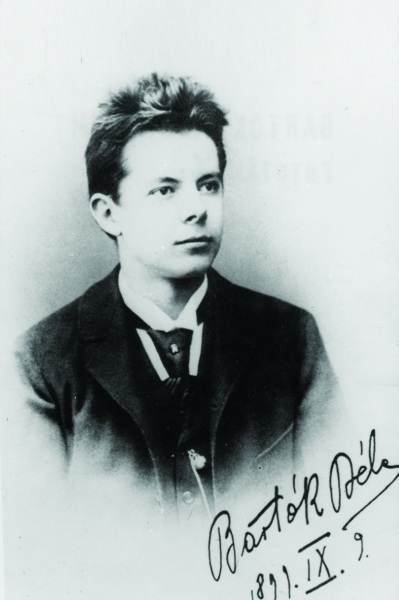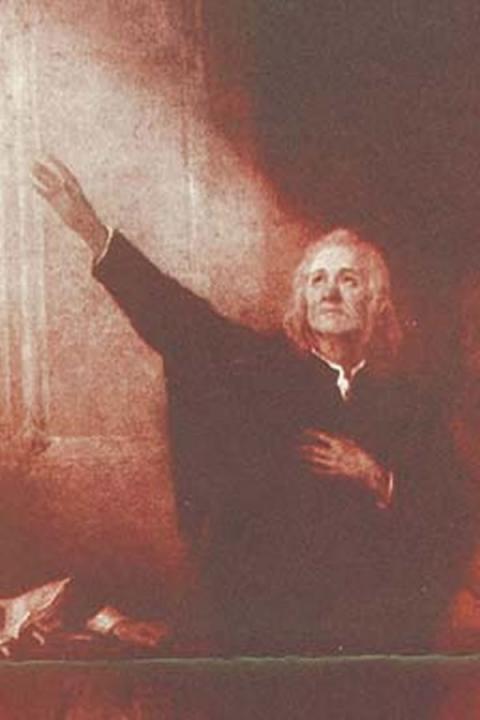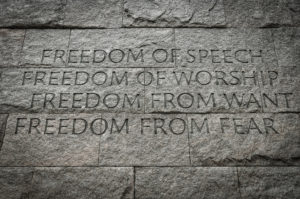Freedom to Do as We Will
May 1, 2018Podcast: Download (Duration: 0:49 — 769.8KB)
Subscribe: More
We each have a measure of freedom
To do as we will. Read more →
Freedom
May 1, 2018May 2018
I am not free while any woman is unfree, even when her shackles are very different from my own. ―Audre Lorde
Articles
Freedom From. Freedom To
Peter FriedrichsEvery spring at Stonewall Farm in Keene, New Hampshire—and at other dairy farms throughout northern New England—there’s a festival to celebrate the season. Read more »
Free and Responsible
Victoria WeinsteinFree and responsible. I would venture to say that freedom is the most cherished religious value for Unitarian Universalists. Read more »
Freedom of Association
Quest for MeaningOne of the gifts of a free society is that of freedom of association—we choose how we will come together, and to what ends. Read more »
Free on the Inside
GeorgeWhat is freedom? Is it an ideal, concept or right? Why are there so many people who are locked up inside themselves? Read more »
From Your Minister
Rev. Meg RileyI love poking around and discovering old words which are new to me. One word that surfaced from my reflections on freedom is the Old English frith, which is related to the words for both friend and free. Read more »
REsources for Living
Rev. Dr. Lynn UngarYou don’t have to spend very long on social media before it becomes clear that while everyone is in favor of freedom and responsibility, people mean very different things by those words. Read more »
Did You Know?
Quest for MeaningYou can listen to audio recordings of Quest Monthly, read back issues or get electronic versions of the text to share with friends (and much more) at questformeaning.org Read more »
Freedom to Do as We Will
Quest for MeaningWe each have a measure of freedom To do as we will. Read more »
Freedom
Quest for MeaningI am not free while any woman is unfree, even when her shackles are very different from my own. ―Audre Lorde Read more »
A Creative Life
April 7, 2017Béla Bartók was a Hungarian pianist and composer who added a great deal to our world through his creativity. He started playing piano as a tiny child, and knew 40 songs by the time he was four—and gave his first public recital , including an original composition he’d written two year earlier, when he was eleven.
Bartók went on to become a famous composer who not only wrote his own music, but also went out around the countryside gathering folk music, which he often worked into his compositions. While he was collecting music from the Székely people in Transylvania he learned about Unitarianism.
He liked the idea of a creative religion that was less about following rules and more about connecting with all aspects of life. He eventually joined a Unitarian church in Hungary, and attended with his son.
With the rise of a fascist government in Hungary and the approach of the Second World War, Bartók fled to the United States. He was safe there, but felt lonely and disconnected from his homeland, and it was hard for him to continue to write music. But when he was diagnosed with leukemia and knew that he did not have very long to live, his creative energy returned in a burst and his last compositions are often considered his greatest.
To learn more about Bartók and listen to some of his music, visit the NPR story, “Béla Bartók: Finding a Voice Through Folk Music”
Music: Béla – Evening in the village
Here is one of Bartók’s compositions, titled “Evening in the Village.” The tune comes from a folksong, which is called the “ancient Székely anthem.” The pictures in the video were almost all taken in Transylvania, where Bartók discovered Unitarianism. (The one with the gate was taken in Máriabesnyő, a famous shrine in the outskirts of Budapest.)
A New Freedom of Faith
January 3, 2017Throughout the history of Christianity there have been big fights over changes in religious belief and practice, with different people say their version is the real version.
But King John Sigismund, the one and only Unitarian king in history, had a different point of view. Way back in 1561, John Sigismund was very interested in religion, partly because people in his country of Transylvania kept fighting about it. The Roman Catholics, Lutherans, Calvinists, and Unitarians all argued about whose views about God and Jesus and how church services should be conducted were right.
Finally, King John called the best speaker from each church to come to a place called Torda for a debate to decide who was right. The speaker from the Unitarian church was a man named Francis David. He argued that no one has the right to force people to believe anything about God, and that it’s OK if our understanding of religion changes.
After 10 days, King John ordered the debate to end. But he did not announce a winner; he did not say that any of the four churches was the best. Instead, King John agreed with Francis David, and he created what was called the Edict of Torda, which declared that every church and every person would be free to follow their own beliefs, even if those beliefs changed over time. There are still Unitarians in Transylvania today who share that commitment to freedom of belief.
Read more about Francis David from the UUA’s Tapestry of Faith programming, or read the Edict of Torda for yourself!
Choosing When to Pray
November 1, 2016Prayer is an important part of the spiritual lives of many UUs—but we also are clear that people need to choose for themselves how and when they will pray. It isn’t the government’s place to decide that for people.
In the early 1960s the UU Schempp family helped to make that clear in American law. Sixteen-year-old Ellery Schempp wasn’t comfortable with having to say the Lord’s Prayer and listen to Bible readings at his public school. His parents, Ed and Sidney Schempp, talked about the issue with Ellery and his siblings Roger and Donna. Together they decided that not only was it not right for Ellery to have to say a prayer he didn’t believe in, no kid should be required to say a prayer that didn’t match their beliefs or faith tradition.
So the Schempps challenged the school in court, and their case went to the Supreme Court. In 1963 the court ruled in Abington Township School District v. Schempp that it was unconstitutional for a public school to expect students to participate in school-sponsored religious activity. The 1st Amendment of the US Constitution guarantees freedom of religion, and a UU family stood up to make sure that children were included in that guarantee.
Free for All
April 1, 2016Podcast: Download (Duration: 15:24 — 7.0MB)
Subscribe: More
I was 22, nursing a broken heart, and I knew for sure that I had to get out of town. Read more →
The Power and Poverty of Freedom
April 1, 2016Podcast: Download (Duration: 13:05 — 6.0MB)
Subscribe: More
Freedom is not just a crucial principle in our religious tradition. It is also a foundational value for the United States. Read more →
Cultivating the Courage to Act
April 1, 2016Podcast: Download (Duration: 0:31 — 493.9KB)
Subscribe: More
Read more →Freedom lies in being bold. —Robert Frost
To All Get Free Together
April 1, 2016Podcast: Download (Duration: 2:36 — 2.4MB)
Subscribe: More
To become an anti-racist faith community, the key question for a white/white majority community is not “How do we get people of color to join our faith community?” Read more →
Slipped the Bonds
April 1, 2016Podcast: Download (Duration: 4:18 — 2.0MB)
Subscribe: More
There are no summer camps open during the last week of August, so my family has taken to spending that week at the beach. Read more →
About
Quest for Meaning is a program of the Church of the Larger Fellowship (CLF).
As a Unitarian Universalist congregation with no geographical boundary, the CLF creates global spiritual community, rooted in profound love, which cultivates wonder, imagination, and the courage to act.
Contact
Church of the Larger Fellowship Unitarian Universalist (CLFUU)
24 Farnsworth Street
Boston MA 02210





